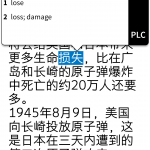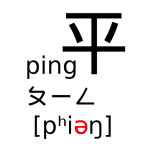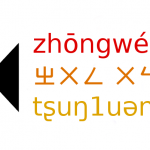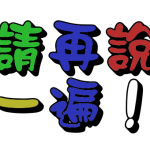Articles in the ‘Beginner’ category Page 25
-
Which words you should learn and where to find them
When learning a language, it’s important to know many words, but it’s also important that you learn the right words. How do you know which words to learn? Where should you find those words? And how much can you express using the ten hundred most common words?
Read → -
Can native speakers be wrong about Chinese grammar and pronunciation?
What does it mean when something is said to be “correct” in Chinese? Who’s right if all the people around you say something, but the dictionary says something else? Mandarin is a huge language spoken my a very large number of people, so some variation is to be expected. This article is about the flexibility of Mandarin and how to deal with it as a student.
Read → -
Learning Chinese characters through pictures
This article is about using pictures to learn Chinese characters. In order to learn characters efficiently, it’s important to understand how they work and what the building blocks are so that these can be used in other characters. Any pictures you use to remember should be based on this. Avoid using pictures that obscure the real meaning.
Read → -
Zooming out: The resources you need to put Chinese in context
In order to learn efficiently, it’s important that you integrate your knowledge. This means being able to break down Chinese in order to understand it, as well as looking at context and sorting out confusing cases. In this second article, I introduce tools for zooming out and putting things in context.
Read → -
Zooming in: The tools you need to break down and understand Chinese
In order to learn efficiently, it’s important that you integrate your knowledge. This means being able to break down Chinese in order to understand it, but it also means looking at context and sorting out confusing cases. In this first article, I introduce tools for breaking Chinese down.
Read → -
Which Chinese learning tools and resources are worth paying for?
This article introduced the few tools and resources I think you should consider paying for when learning Chinese. The first list contains things you really should pay for, the second of things I recommend paying for, but which aren’t strictly necessary. Do you agree? Which things do you think worth paying for?
Read → -
Why you should read Chinese on your phone
Reading Chinese in this digital age is a lot easier than it used to, but it’s actually even easier than many students think. The benefits of reading on your phone are important, including instant access to vocabulary, smaller chunks of text, portability and a sense of getting somewhere when you read. If you haven’t read a Chinese text on your phone yet, you really should give it a try.
Read → -
Learning to pronounce Mandarin with Pinyin, Zhuyin and IPA: Part 2
Which transcription system should you use for Mandarin Chinese: Pinyin, Zhuyin or perhaps IPA? Which system you start out with isn’t extremely important, but if you care about pronunciation, it certainly helps to learn more than one system. In this article, I discuss the pros and cons of all three systems and offer some advice about learning pronunciation.
Read → -
Learning to pronounce Mandarin with Pinyin, Zhuyin and IPA: Part 1
Learning to pronounce Mandarin involves several steps. You need to first discriminate between and then identify the sounds, but you also need to be able to write them down and also be able to read how words are pronounced. In this article, I discuss this process and how you should go about it. It also contains advice for what to avoid!
Read → -
Why you should learn Chinese in Chinese
It’s helpful to use your native language to learn Chinese, but one of the first things you should do is to convert anything you use often in the learning process into Chinese. This includes common classroom expressions or other phrases used when learning. Advanced students will find challenges in Chinese-only learning materials and dictionaries.
Read →









